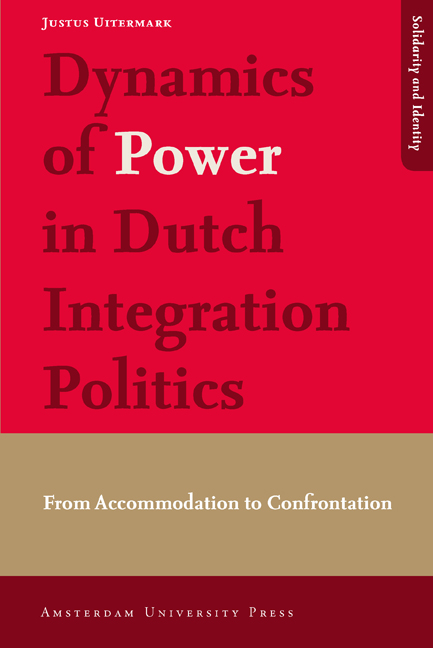10 - Governing Through Islam: Civil Differentialism in Amsterdam After 9/11 and the Assassination of Theo Van Gogh
Published online by Cambridge University Press: 15 January 2021
Summary
As the integration debate heated up, political and policy attention focused on immigrants and Muslims who were actually or potentially criminal, radical, insulated or apathetic. All of these behaviors and attitudes were framed as expressions of a lack of civil integration. Culturalists and pragmatists agreed on this point but disagreed on how to solve the problem. Culturalists developed a discourse demarcating the civil community along the lines of ethnic culture and emphasized the need for strict enforcement. Pragmatists, too, felt that Muslims needed to integrate but considered this a collective challenge, not an exclusive obligation for Muslims. Amsterdam was the most important discursive milieu for the development of Pragmatism. In the 2002 elections, Labor was pushed out of office at the national level and in Rotterdam but remained in power in Amsterdam, which thus functioned as a showcase for Pragmatism.
The first section of this chapter examines how the Amsterdam government developed its discourse and how it forged its strategy for civil repair in the wake of 9/11 and the assassination of Theo van Gogh. The second section shows that the government divided the population into groups according to their putative civil virtue. The result was the emergence of civil differentialism: a governance figuration that transcended many of the contradictions of ethnic corporatism and civil liberalism but that also – as we shall see in the third section – had contradictions of its own.
The formation of civil differentialism
Part II showed that integration politics proliferated after 2000 and exploded after the assassination of Pim Fortuyn. Actors that challenged the pragmatist approach towards integration were stronger than ever before. They claimed that a series of incidents – with the assassination of Van Gogh as apotheosis – demonstrated that the Netherlands had been too soft on immigrants and that a more demanding and repressive approach was needed. The heating up of integration politics and the growing power of Culturalism forced the Amsterdam government to abandon its optimistic Diversity Discourse. After the turn of the century, the government, and especially the mayor, Job Cohen, developed a discourse that revolved around the idea that all groups within society had an obligation to defend civil unity.
- Type
- Chapter
- Information
- Dynamics of Power in Dutch Integration PoliticsFrom Accommodation to Confrontation, pp. 201 - 216Publisher: Amsterdam University PressPrint publication year: 2013



